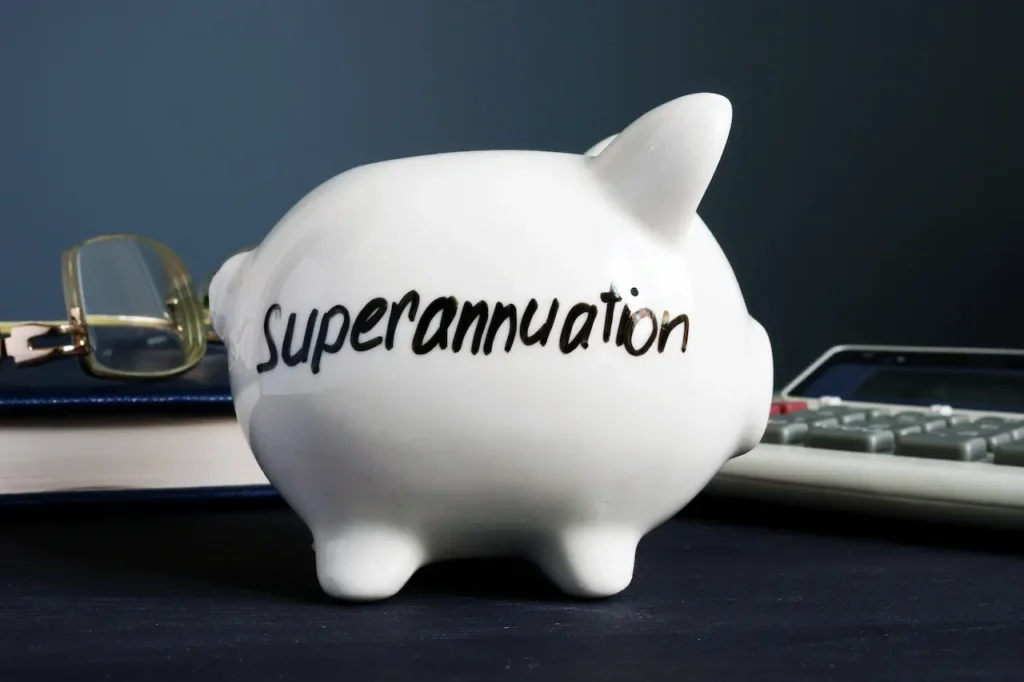Is Your Super in Danger?
Understanding the Risks and How to Navigate Market Volatility
As the markets continue to experience ups and downs, many Australians are starting to question whether their superannuation funds are safe. Recently, Marco Mellado, a superannuation advisor and specialist at Sandman Private Wealth, joined Paul Verhoeven on ABC Radio Melbourne to answer some of the most pressing questions on superannuation, market volatility, and how to ensure your retirement savings are in good shape despite the fluctuations.
The Market Rollercoaster
It’s no secret that markets have been turbulent lately. With some super balances taking a hit, many Australians are understandably concerned. But, according to Marco, this type of volatility is nothing new. “Markets are cyclical,” he explained. “They have their peaks, and they have their troughs. Right now, we’re going through a trough, but that doesn’t mean it’s permanent.”

One of the first things to check when your superannuation balance dips is your asset allocation. “This is the breakdown of your investments—how much is in growth assets versus defensive assets,” Marco clarified. Growth assets, like shares and real estate, are more volatile but tend to grow in value over time, while defensive assets, like bonds and cash, are more stable but offer lower returns.
Marco emphasised that understanding this allocation is crucial to determining the right approach for your super, especially during times of market stress. If you’re nearing retirement, you might want to have a higher proportion of defensive assets. However, for those with years left before retirement, a growth-heavy portfolio could offer greater returns in the long term.
The Safest Place for Your Money
One caller, Rick, asked Marco about the safety of moving his superannuation into a bank account due to market volatility. Marco confirmed that cash is indeed one of the safest options, especially in Australia, where bank deposits are guaranteed by the government up to a certain limit.
However, there’s a downside. “Cash gives you safety, but it’s also going to give you the lowest return,” Marco explained. The key is not to stay in cash too long. “Markets tend to recover, and when they do, the gains can be significant. So, while it’s okay to park money in cash temporarily, you don’t want to miss out on the recovery.”
Marco’s advice? Start edging back into the market gradually. He recommended spreading your investment re-entry over six to twelve months. This allows you to avoid trying to time the market perfectly, which is nearly impossible.
Is Timing the Market Important?
The question of timing is always a big one when it comes to investing, and another listener, Mark, raised a valid point. He wanted to know whether Marco’s advice to re-enter the market was based on gut feeling or hard data.
Marco was quick to dispel the idea that investment decisions are based on intuition. “We don’t work on gut feelings in this business,” he said. Instead, he pointed to the extensive research Sandman Private Wealth does to track market signals. By analysing the data and looking for signs of a recovery, Marco can make informed decisions about when to re-enter the market.
While there’s never a perfect time to invest, Marco suggested that if you’ve been sitting on cash, it may be time to start reinvesting, just not all at once. The goal is to take advantage of market recoveries without risking too much all at once.
The Great Tax Debate: Superannuation and Government Proposals
A significant topic that came up was the government’s proposed tax changes on superannuation balances above $3 million. The proposal, which would impose higher tax rates on these larger super balances, is causing a lot of debate.
Marco expressed concern over the idea of taxing unrealised gains. “There’s no precedent for taxing gains that you haven’t realised by selling an asset,” he said, calling it a flawed approach. While he understood the reasoning behind wanting to ensure the wealthy pay their fair share, Marco believes that the method proposed needs to be reworked.
He also noted that if the government needs to raise money, there are other avenues it could explore. “They may need to make cuts in other areas or look to raise funds elsewhere,” Marco suggested, pointing to areas like negative gearing and capital gains tax concessions, which are currently hot topics due to the ongoing housing crisis.

The Mattress Investor: A Cautionary Tale
One caller, Charlie, raised an interesting issue that many might find a bit quirky. He asked Marco about a friend of a friend who keeps money hidden in mattresses and walls, a practice that, while rare, is not unheard of. Marco acknowledged the unique mindset of someone who might distrust traditional financial institutions, but he recommended a more practical approach for the individual’s family members.
“If they’re stashing cash in mattresses, it’s probably because they have a very low risk tolerance,” Marco said. For such individuals, it might be best to slowly introduce them to safer investment options like high-interest savings accounts or term deposits. “The goal is to get that cash working a little harder without jumping into more volatile assets like shares or real estate.”
In situations like these, Marco stressed the importance of understanding the person’s worldview and working with them to find a solution that aligns with their comfort level.
Should You Rely on Your Fund Manager?
Another caller, Mark, asked whether he should rely entirely on his pension fund manager to allocate his investments or take matters into his own hands. Marco explained that if you’re receiving a defined benefit pension, like those from the government or certain employer super plans, you likely don’t have much control over how your funds are invested. These funds are managed by professionals to ensure your regular pension payments.
For those who do have control over their superannuation investment choices, Marco advised educating yourself on the different investment options available and understanding the risks and rewards of each.
Asset Allocation: The Key to Weathering the Storm
Marco explained that understanding your asset allocation — the mix of growth and defensive assets in your super, is the first step to managing your investment strategy during turbulent times. Growth assets, like shares and real estate, are designed to grow over the long term, but they come with some bumps along the way. On the flip side, defensive assets, like bonds and interest-earning investments, are more stable and serve as a cushion when markets take a downturn.
The key takeaway? You need to assess how much of your super is invested in these different assets. “Do you have a 50-50 split? A 60-40 split? Understanding your risk profile will help guide your next steps.”
Taking Action: Should You Pull Your Super Out?
When the markets are down, many people consider pulling their money out of super and putting it into safer investments, like cash. But is this a smart move? During the interview, a caller named Rick shared that he had pulled his money out of his super and put it into a bank account earning around 4.6% interest. But Marco cautioned against staying in cash for too long.
“Cash is the safest asset, but it’s also the one with the lowest return over time,” Marco explained. While cash might offer safety during times of market decline, it doesn’t grow your wealth. And, when the market recovers — as it always does, you could miss out on significant gains.
Marco’s suggestion? Start “edging back in” to the market gradually over the next six to twelve months. “Markets can recover quickly, and when they do, they can go up sharply,” he noted. The goal is to avoid sitting on the sidelines for too long and to make sure your super continues to work for you.
The Politics of Superannuation: Are New Tax Proposals a Concern?
On the topic of taxes, Marco addressed the current debate about the Labour government’s proposal to increase taxes on superannuation balances over $3 million. The idea is to tax unrealised capital gains — a proposal that, according to Marco, “has no precedent.” He believes that while the notion of taxing the super-rich is gaining support, the method behind it is problematic. “It’s just never been seen before, and there’s a lot of opposition to it,” he said.
Although the proposal is unlikely to pass in its current form, Marco suggested that it’s part of a broader conversation about wealth inequality, especially considering the current housing crisis. For now, if you’re not one of the super-wealthy, this tax is likely not a concern. But it’s worth keeping an eye on as the political landscape evolves.
When Can You Access Your Super?
For those wondering when they can finally dip into their super to pay off debts or finance their retirement, Marco clarified the rules around accessing their super. “The youngest age you can access your super is 60,” Marco explained, adding that if you retire or cease employment after reaching 60, you can start withdrawing your superannuation. If you continue working, the age limit rises to 65.
And if you’re in a situation where you have an investment property or a business, it doesn’t change the basic rules. “Once the money is in your hands, you can do whatever you want with it,” Marco said. That means you could use it to pay down your home loan, buy a new car, or, if you wanted to, purchase a haunted amusement park.
What About Smaller Investment Amounts?
For those starting to invest but with smaller amounts, say, $70,000 or $100,000, Marco also offered advice on seeking financial guidance. Many financial advisors have minimum thresholds for clients, but if you don’t meet these, “robo-advisors” could be an option. These automated investment services are low-cost and accessible, often requiring much smaller amounts to get started.
Marco mentioned services like StockSpot, which creates an investment portfolio based on your risk tolerance. This can be a great entry point if you’re looking to invest but aren’t yet ready to hire a traditional financial advisor.
Conclusion: Stay Calm and Stay Informed
Ultimately, the key takeaway from Marco’s discussion is that market volatility is a natural part of the investing world. While watching your super balance fluctuate can be unnerving, understanding your asset allocation, staying informed, and taking a long-term approach can help you navigate through turbulent times.
As always, it’s important to assess your situation and consider speaking to a professional financial advisor to ensure you’re making the best decisions for your superannuation and retirement savings. With the right strategy and mindset, you can weather market storms and come out ahead.
With all the turbulence in the markets, it’s easy to panic, but Marco’s advice remains clear: “Don’t make rash decisions based on short-term events.” Instead, assess your asset allocation, understand your risk tolerance, and consider a gradual re-entry into the market if you’ve been in cash. And remember, the government might be tinkering with superannuation rules, but your retirement is still yours to plan — so stay informed and stay prepared.
If you’re feeling overwhelmed, don’t hesitate to reach out to a financial advisor, whether traditional or robo. The important thing is that you’re taking action now to secure your financial future.
Stay tuned to On the Money for more insights on navigating your financial future.




